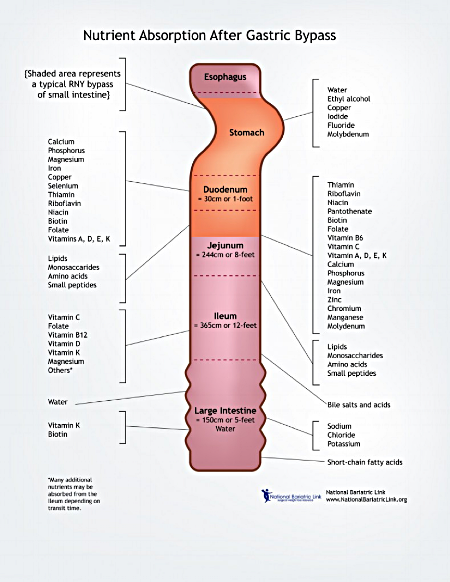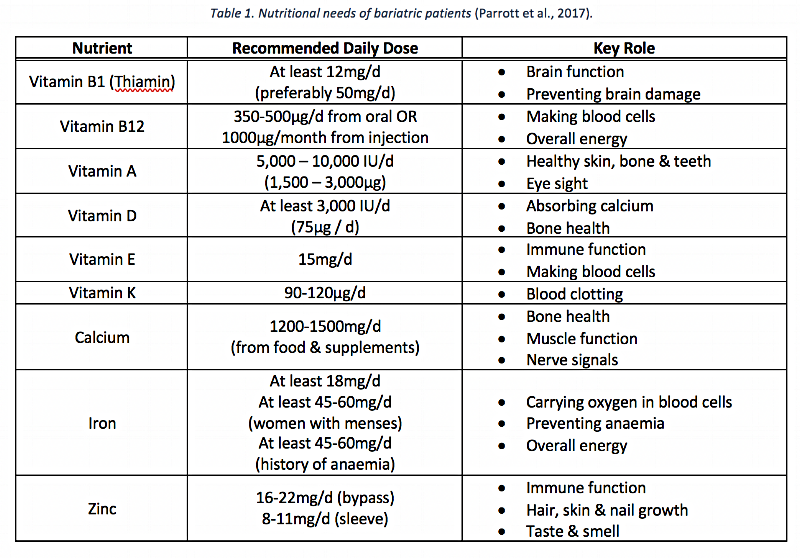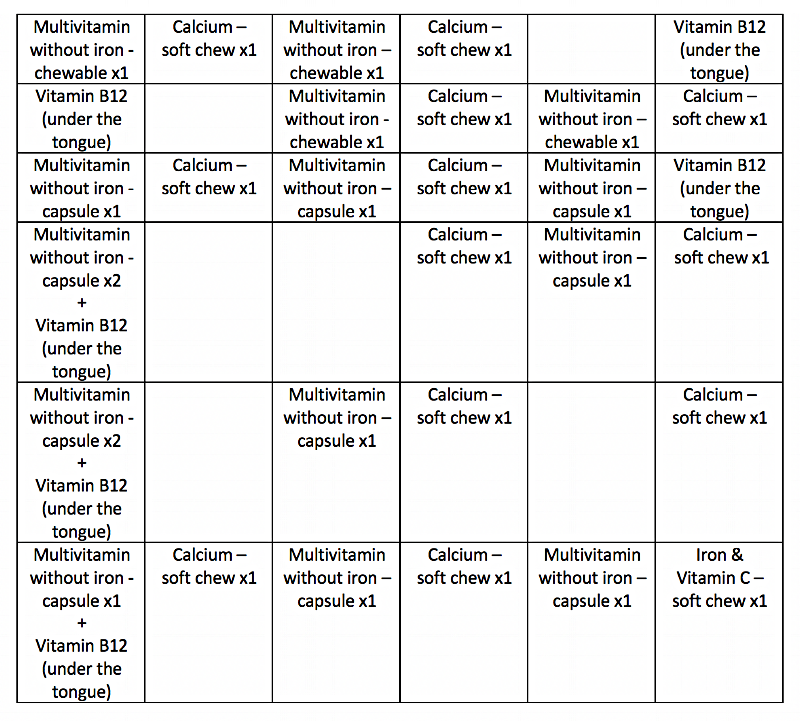Supplements and You
Welcome back to ‘Drew’s Desk’ – this month I’m thinking about nutritional supplements. I’d like to talk about the reasons for needing a routine that’s giving your body what it requires each and every day after your surgery. Before that, let’s start with some questions…
Are you feeling tired and ready for bed more than wanting to bounce off the walls each day? Are you having problems with concentrating or thinking straight at home or work? Is your skin quite dry, or have you been noticing cracks on the edges of your mouth? If yes to any of these, are you taking supplements regularly, and are they in high enough amounts to give your body what it needs?
Just like Bob the Bulldog and Terry the Terrier are different in strength, so too are supplements.
Over the counter brands from health shops, pharmacies and supermarkets are fine for Mr and Mrs Bloggs, but the general population can absorb the nutrients in those supplements without any issue. The picture below shows where the nutrients from food and supplements are absorbed in the intestines, and you’ll see that for bypass patients, there is a detour around the region where most of them get absorbed the easiest. They can be absorbed further down, but a higher dose is needed because the body struggles to absorb them and many will pass through the system and out the other end.
Figure 1. Nutrient absorption (National Bariatric Link, 2018)
Gastric sleeve patients are in a similar boat. There is no detour around the nutrient absorption region, but a smaller stomach means less food being eaten, and that means low levels of nutrients are absorbed from food. Also, all bariatric surgeries (bypass and sleeve) mean less stomach acid is made, and the acid is needed for nutrients like iron and vitamin B12 to be absorbed properly.
So, bariatric patients need more than the usual amount of nutrients in general supplements to make sure they’re getting enough of what they need to prevent nutritional deficiencies causing fatigue, skin problems, or overall poor immune function not to mention brain damage. The next table shows the recommended doses of some important nutrients for bariatric patients and the roles they play.
All nutrients are really important for your body. Iron and B12 affect energy levels for instance. Zinc will help with fighting colds and helping with hair re-growth. Deficiencies can be detected with blood testing, and that’s why you get a blood form at each of your follow up visits.
In saying that, monitoring calcium is tricky. Calcium will generally stay normal in your blood - with or without enough calcium coming from food and supplements. That’s because your body needs a stable level in your blood for making your nerves and muscles work. It breaks down your bones for calcium if not getting enough from food and supplements and that worries me considering the risk of osteoporosis. Vitamin D helps absorb calcium, and that’s why you’ll hear vitamin D being talked about as important for bone health.
So, a daily routine of taking all your supplements is needed for meeting your nutritional needs – and that leads me to my ‘Hot Seat’ for this month.
Drew’s Hot Seat – establishing a healthy habit of daily nutritional supplementation
I can hear your frustrations as I write iron and calcium can’t be taken together. I’m not saying it to be difficult, I swear! Sadly, as you may already know, iron and calcium get absorbed in the same area in the intestine. They basically pass through the same entry gate, and just as we line up to get into a rock concert or sports event, iron and calcium need to line up for their entry into your body. At least two hours is needed between them entering, but that can make a routine that works for you quite difficult – especially if your multivitamin contains iron. On the bright side, vitamin B12 can be taken at any time, but the plot thickens with calcium.
Your body can only absorb up to 500mg at one time. Taking any more than 500mg will simply be wasted. Calcium comes as citrate or carbonate, but calcium carbonate must be taken with food for absorption while calcium citrate can be taken between meals and still get absorbed. In other words, calcium citrate makes life a lot easier for finding a routine that works for you. You’ll see below I’ve suggested some supplementation routines to show you how supplementation can work within the space of a day. I’ve used the Celebrate range (www.amsnutrition.co.nz) which is specifically formulated for bariatric patients, so beware if using any over the counter products like Centrum or Healtheries - you’ll need a higher dose than mentioned on the packaging. Over everything else, make sure to discuss your needs with a Dietitian.
The Take Home of Today
To wrap up today, I’ll go into broken record mode. That’s my signal for saying something again and again because it’s so darn important. Your nutritional supplements are as important as taking any other medications you may have. I hope you can see my reasons for thinking so, and I really hope the example routines help you feel a daily routine is quite achievable as a habit. Wishing you all the best for another month and looking forward to next month already.
Drew
References
National Bariatric Link. (2018). Nutrients from Food After Gastric Bypass Surgery. Retrieved September 1, 2018, from https://www.nationalbariatriclink.org/bariatric-blog/nutrients-food-gastric-bypass-surgery/
Parrott, J., Frank, L., Rabena, R., Craggs-Dino, L., Isom, K., & Greiman, L. (2017). American Society for Metabolic and Bariatric Surgery Integrated Health Nutritional Guidelines for the Surgical Weight Loss Patient 2016 Update: Micronutrients. Surgery for Obesity and Related Diseases, 13(5), 727–741.






